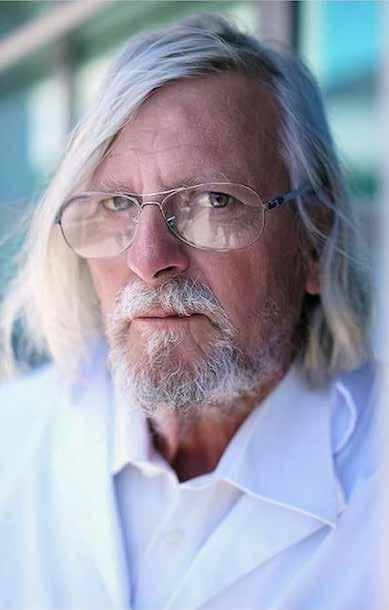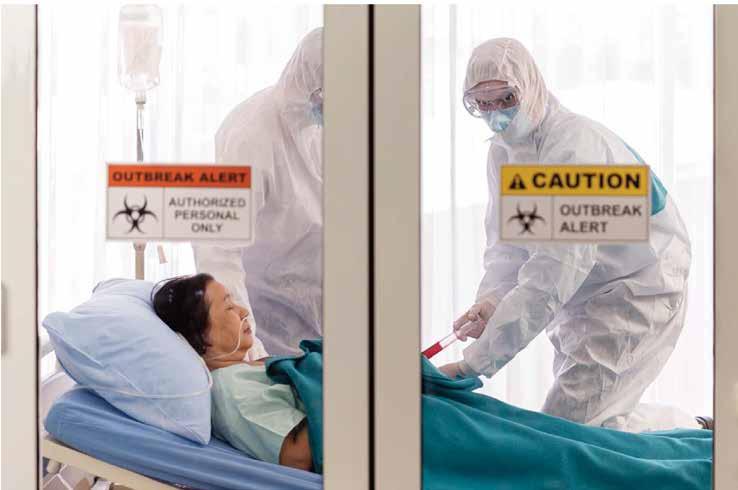INTERVIEW
Director of IHU Méditerranée Infection
Didier Raoult “What we do know is that the sooner the patient is treated the faster the recovery outcome” By Zeina Trad-Marseille for "Hospitals" magazine
T
hanks to Didier Raoult, Marseille is home to one of the largest infectious and tropical diseases teams in the world with more than one hundred nationalities within its URMITE (the Research Unit on Emerging Infectious and Tropical Diseases). Pfizer, Moderna, AstraZeneca…For the past several weeks, laboratories have been in a mad dash to know who will have the biggest announcement. Vaccines being developed at a surprisingly rapid rate have remarkable effectiveness rates, yet still lack evidence of their future ability to contain the epidemic. Worse yet, there is no guarantee that they will not cause side effects either. And once the euphoria has passed, many media outlets need to be scandalized by the emerging reserves, Professor Didier Raoult, Director of the University Hospital Institute of Infection (IHU) in Marseille received us to provide an update on the COVID-19 epidemic.
After a year of COVID19 do we know everything about the Virus? No, we don't know everything yet. We continue to find out. What we do know is that the sooner the patient is treated the faster the recovery outcome. We also know that 1% of patients are less seriously impacted if treated early. The people who die are those who have a high morbidity rate. We also know that the recent variants in Europe were due to infection between humans and mink. It is a new disease. These viruses have an extraordinary mutation ability like all RNA viruses. They also have the ability to infect other animals and if the virus results in a high-density epidemic in animals, mutations can build up and we can see a new mutant emergence infecting us and creating a second epidemic that stems from another source than the one we had, and therefore
JAN.FEB 2021
76
creating a second epidemic as the one we know in Europe today.
Why do some people get sick and others don’t? Everyone is affected more or less. Some experience mild symptoms and others more severe ones. If you are treated very early from the onset of symptoms, you will not develop severe symptoms. Otherwise, there is a good chance it will get worse. This disease affects the elderly population and those with a high morbidity rate (cancer, diabetes, etc.)
Do we know the long-term health consequences of infection? Yes, we are starting to see neurological, pulmonary and venous complications. But for the moment, we do not have enough hindsight yet
WE DO NOT HAVE SUFFICIENT STUDIES ON THE CONSEQUENCES OF RNA. I AM WAITING FOR LABORATORIES TO SEE THE REAL DATA FOR MODERNA AND PFIZER.














